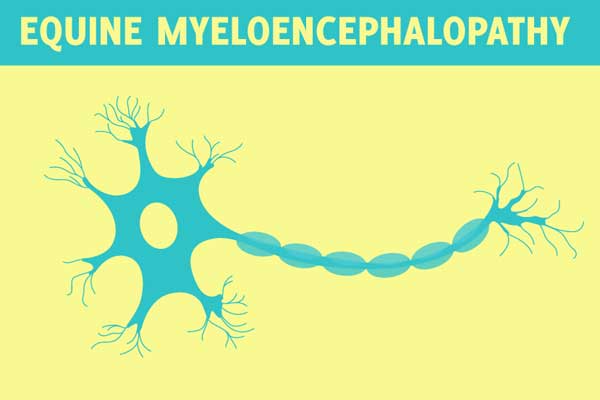Equine degenerative myeloencephalopathy (EDM), a neurological disease of young horses, causes progressive development of symmetric ataxia predominantly in the pelvic limbs.
Journal of Equine Veterinary Science, Volume 70, November 2018, Pages 96-100
Author: Christian J. Posbergh, Geoffrey E. Pollott, Teresa L. Southard, Thomas J. Diversd, Samantha A.Brookse
Abstract
Equine degenerative myeloencephalopathy (EDM), a neurological disease of young horses, causes progressive development of symmetric ataxia predominantly in the pelvic limbs. Equine degenerative myeloencephalopathy is likely inherited and with no known treatment affected horses frequently need euthanasia.
Alpha-tocopherol deficiency during early life appears to contribute to the phenotype. This study sought to identify any genetic variants correlated with EDM in Caspian foals. Two half-sibling EDM-diagnosed cases were genotyped at 52,063 loci and evaluated by the Autozygosity by Difference statistic.
Additional horses not affected by EDM were used for genetic comparison to identify regions unique to the case phenotype. The associated region on chromosome 3 contains only one gene encoding adhesion G protein–coupled receptor L3 (ADGRL3). Adhesion G protein–coupled receptor L3 is a member of the latrophilin subfamily of G protein–coupled receptors and may contribute to attention deficit/hyperactivity disorder in humans and hyperactive motor function in mice and zebrafish.
Analysis of the predicted coding regions for Equine ADGRL3 in affected horses revealed a nonsynonymous single nucleotide polymorphism at Chr3:71,917,591 bp. Caspian and Caspian cross-relatives (n = 81) of the two initial cases and unrelated horses from similar breeds (n = 130, including Arabians, American Miniatures, and Shetlands) possessed this allele at 5% frequency, with no homozygotes observed within the non-Caspian breeds. This study suggests that a polymorphism in ADGRL3 could contribute to a genetic predisposition to Caspian horse EDM.
Keywords: Latrophilin-3Autozygosity by differenceSequencingEquine neuroaxonal dystrophy


Caspian horse, being a truly ancient breed, I can understand responsible breeding to keep their numbers healthy. I was surprised at the cost and wonder if increasing their numbers might be difficult. As the Caspian is an easy going friendly horse I would hate to see the Caspian breed become threatened.
This is very interesting, You’re a very skilled blogger.
I’ve joined your feed and look forward to seeking more
of your magnificent post. Also, I have shared your web site in my social networks!
https://shop4shoe.com
If you desire to obtain a great deal from this piece of writing then you have to apply these methods to your won web site.
Keep on working, great job!
That is really fascinating, You’re an excessively
skilled blogger. I have joined your rss feed and stay up for
in search of extra of your fantastic post. Additionally, I have
shared your web site in my social networks